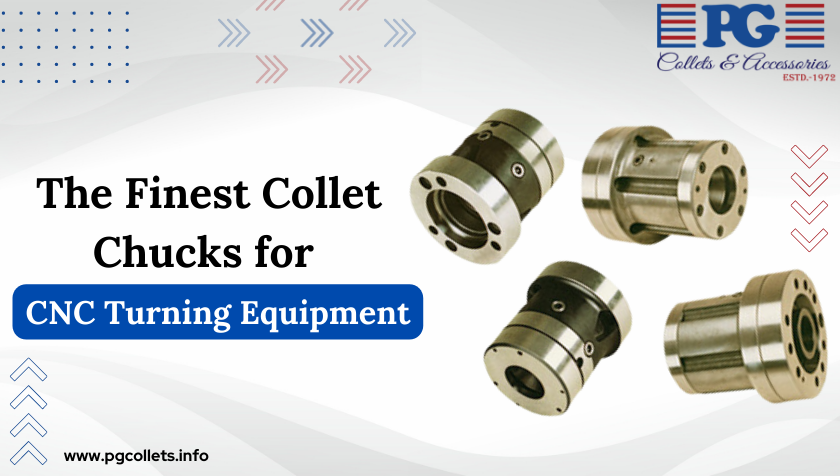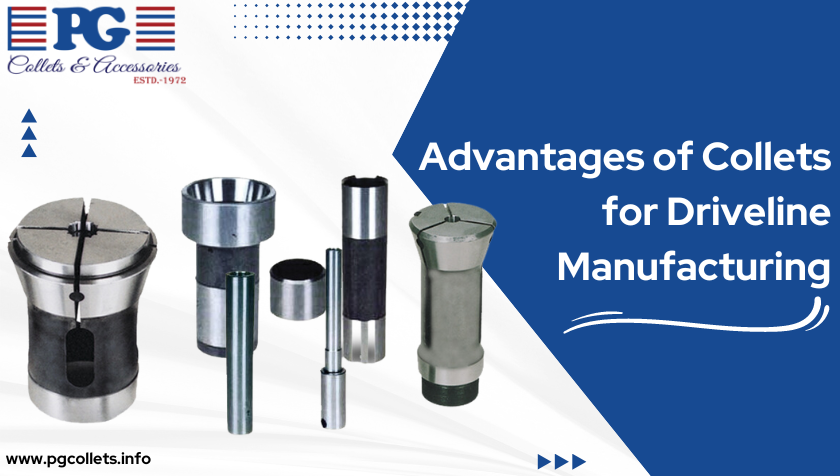As a CNC turning equipment user, you understand the importance of having the right tool for the job. One tool that you should not overlook is the collet chuck. Collet chucks are used to hold and secure workpieces in place during CNC turning operations. In this article, I will cover the benefits of using collet chucks, the types available, factors to consider when choosing, top brands and manufacturers, maintenance and care tips, troubleshooting common problems, and reviews of the finest collet chucks for CNC turning equipment.
Benefits of Using Collet Chuck
Collet chucks offer a range of benefits that make them a popular choice for CNC turning equipment. One of the most significant benefits is the superior grip they provide. Collet chucks use a collet to grip and secure a workpiece in place, ensuring that it stays in position during turning operations. This grip is stronger and more secure than other types of chucks, such as jaw chucks, making collet chucks ideal for precision work.
Another benefit of collet chucks is their ability to hold a wide range of workpiece sizes. Unlike other types of chucks, which are designed to hold specific sizes, collet chucks are adjustable and can hold a range of sizes. This flexibility makes collet chucks a versatile tool for CNC turning equipment.
Finally, collet chucks are easy to use. Once a r8 collet is inserted into the chuck, it can be quickly and easily tightened to grip the workpiece. This ease of use saves time and allows for more efficient turning operations.
Types of Collet Chuck for CNC Turning Equipment
There are several types of collet chucks available for CNC turning equipment. The most common types are:
1. Spring Collet Chuck
Spring collet chucks are the most popular type of collet chuck. They use a tapered collet with a series of slots that expand when the collet is compressed. This expansion grips the workpiece, holding it securely in place during turning operations. Spring collet chucks are versatile and can hold a wide range of workpiece sizes.
2. Dead-Length Collet Chuck
Dead-length collet chucks are similar to spring 5c collet chucks, but they have a fixed length. This means that they can only hold workpieces of a specific length. Dead-length collet chucks are ideal for high-precision work, as they offer excellent accuracy and repeatability.
3. Pull-Back Collet Chuck
Pull-back collet chucks use a 16c collet that is pulled back into the chuck body when tightened. This design ensures that the workpiece is centered in the chuck, which is essential for precise turning operations. Pull-back collet chucks are ideal for high-precision work, such as the production of medical components or aerospace parts.
Factors to Consider when Choosing Collet Chucks
When choosing collet chucks for CNC turning equipment, there are several factors to consider:
1. Workpiece Size
The size of the workpiece is the most critical factor to consider when choosing collet chucks. You need to ensure that the collet chuck you choose can hold the size of the workpiece you will be turning.
2. Material
The material of the collet chuck is also important. Collet chucks are typically made from steel or carbide. Steel collet chucks are more affordable, but carbide collet chucks offer better durability and precision.
3. Accuracy
Accuracy is critical when it comes to CNC turning operations. You need to ensure that the collet chuck you choose offers the accuracy and precision required for your specific application.
4. Brand and Manufacturer
Choosing a reputable brand and manufacturer is essential when selecting collet chucks. Top brands and manufacturers have a proven track record of producing high-quality and reliable collet chucks.
Top Brands and Manufacturers of Collet Chucks
There are several top brands and manufacturers of collet chucks for CNC turning equipment. Some of the most popular include:
1. Hardinge
Hardinge is a well-known manufacturer of high-quality collet chucks. Their products are known for their durability and precision, making them a popular choice for CNC turning operations.
2. Royal Products
Royal Products is another top manufacturer of collet chucks. Their products are known for their accuracy and reliability, making them a popular choice for high-precision turning operations.
Röhm is a German manufacturer of collet chucks. Their products are known for their precision and versatility, making them a popular choice for a wide range of CNC turning applications.
Maintenance and Care of Collet Chucks
To ensure that your collet chucks continue to provide accurate and reliable performance, it is essential to take proper care of them. Here are some maintenance and care tips to keep in mind:
1. Clean Regularly
Regular cleaning is essential to remove any debris or dirt that may accumulate in the 173e collet chuck. Use a clean cloth or brush to remove any debris.
2. Lubricate
Lubrication is essential to ensure smooth operation of the collet chuck. Apply a small amount of lubricant to the chuck regularly to keep it operating smoothly.
3. Inspect Regularly
Regular inspections are essential to identify any wear or damage to the collet chuck. If you notice any damage, it is essential to replace the collet chuck immediately to prevent any further damage.
Common Problems with Collet Chucks and How to Troubleshoot Them
Despite their many benefits, Collet Chuck can experience problems from time to time. Here are some common problems and how to troubleshoot them:
1. Poor Grip
If the collet chuck is not gripping the workpiece properly, it may be due to a dirty or damaged collet. Clean the collet and inspect it for any damage. If the collet is damaged, it will need to be replaced.
2. Runout
Runout is when the workpiece is not centered in the collet chuck. This can be due to a dirty or damaged collet or a misaligned chuck. Clean the collet and inspect it for any damage. If the collet is damaged, it will need to be replaced. If the chuck is misaligned, it may need to be adjusted.
3. Over-Tightening
Over-tightening the collet chuck can cause damage to the chuck or the workpiece. Ensure that you are using the correct torque settings and do not overtighten the chuck.
Reviews of the Finest Collet Chucks for CNC Turning Equipment
Now that we have covered the benefits, types, factors to consider, top brands and manufacturers, maintenance and care, and troubleshooting of collet chucks, let’s look at some of the finest collet chucks available for CNC turning equipment.
1. Hardinge 5C Collet Chuck
The Hardinge 5c emergency collet chuck is a popular choice for CNC turning operations. It is known for its durability and precision, making it ideal for high-precision work. The 5C collet chuck is versatile and can hold a wide range of workpiece sizes.
2. Royal Products ER Collet Chuck
The Royal Products ER collet chuck is another popular choice for CNC turning operations. It is known for its accuracy and reliability, making it ideal for high-precision work. The ER collet chuck is versatile and can hold a wide range of workpiece sizes.
3. Röhm KFD-HS Collet Chuck
The Röhm KFD-HS collet chuck is a German-made collet chuck known for its precision and versatility. It is ideal for a wide range of CNC turning applications and can hold a range of workpiece sizes.
Conclusion
Collet chucks are an essential tool for CNC turning equipment. They offer superior grip, flexibility, and ease of use, making them a popular choice for precision work. When choosing collet chucks, it is important to consider factors such as workpiece size, material, accuracy, and brand and manufacturer. Taking proper care and maintenance of collet chucks is essential to ensure accurate and reliable performance. If you experience any problems with your collet chuck, refer to the troubleshooting section for guidance. With the right collet chuck, you can achieve accurate and efficient CNC turning operations.



